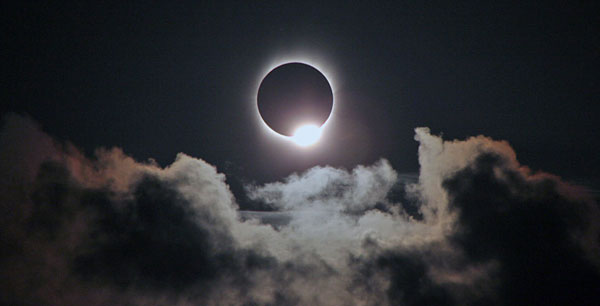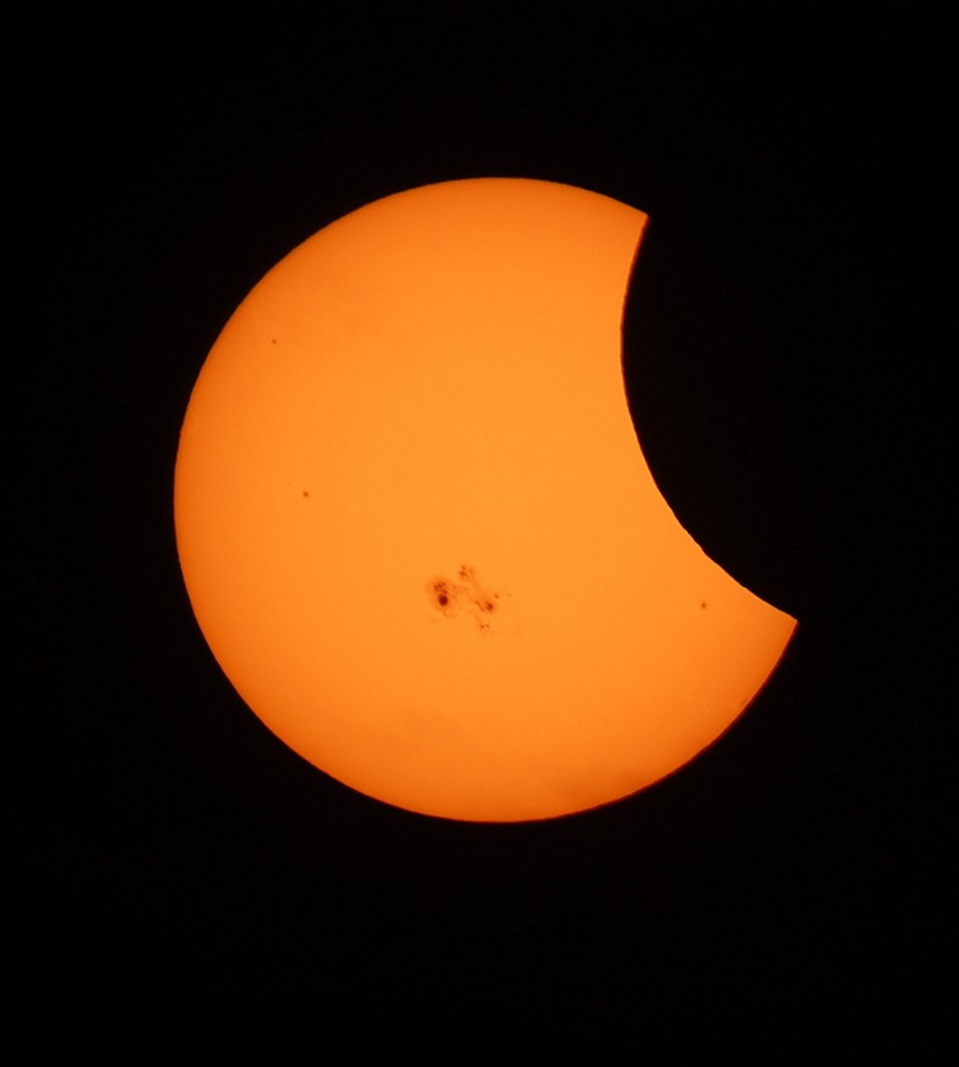Watch the total solar eclipse — alongside interviews with scientists and astronauts — with these livestreams.

Whether you couldn't make it to watch the total solar eclipse or clouds interfered with the view, there are still options — watch the solar eclipse online with webcasts streaming from across North America. You'll find several organizations, including NASA and the Exploratorium museum, showing the eclipse from various points along the path of totality.
Watch with NASA
NASA will host live coverage of the eclipse from 1 p.m. to 4 p.m. EDT, including live views of the eclipse from across North America, special appearances by NASA experts, astronauts aboard the space station, and an inside look at NASA’s eclipse-science experiments. The NASA broadcasts will stream on NASA+ and on NASA TV.
If you'd prefer a telescope-only feed (with no commentary), that will be available separately on YouTube, also from 1-4 p.m. EDT.
NASA will also host a watch party of the eclipse in Spanish starting at 1:30 p.m. on YouTube.

Watch with the Exploratorium
The Exploratorium, a science museum based in San Francisco, has worked with NASA to broadcast celestial events live since 1998. On April 8th, Exploratorium will be broadcasting from Junction, Texas and Torreón, Mexico, with webcasts available on the Exploratorium website. The webcasts are available in multiple versions, including two with live commentary in English and Spanish, respectively. There are also two versions with no commentary, just uninterrupted live feeds; one of these will include a live sonification (music only) of the event.
Views from Above and All Around
Dozens of student teams participating in the Nationwide Eclipse Ballooning Project will be flying scientific balloons on April 8th to observe the eclipse and its effects on Earth's atmosphere as well as run individually designed experiments. Live feeds from the airborne experiments will be available via YouTube.
Timeanddate will be hosting live feeds of the eclipse starting at 12:30 p.m. EDT, also available on YouTube.
The Virtual Telescope Project, hosted by Gianluca Masi, will be sharing views of the total solar eclipse from a number of locations, starting at 1 p.m. EDT on April 8th.
Journalists from the Associated Press spread along the path of totality will be hosting their live-streamed views on YouTube. Starting at 10 a.m. EDT with views from Mazatlán, Mexico, and other locations, the livestream will also include commentary from 1:30 p.m. to 3:30 p.m. EDT.
Slooh will broadcast from Texas starting at 1:00 p.m. EDT, and the company will also have a network of partner telescopes along the path.
While you can watch webcasts from a browser, there are also apps that give you convenient access to some of them, including NASA's app (iOS, Android) and the Exploratorium's Total Solar Eclipse app (iOS, Android).
MSNBC’s Katy Tur anchors special coverage of the total eclipse beginning at 2pm ET on April 8 on MSNBC. Throughout the coverage, MSNBC will use innovative in-studio virtual reality technology to demonstrate the path of the solar eclipse across North America.
 2
2









Comments
Andrew James
April 5, 2024 at 7:25 pm
Although I am far away from the eclipse, the site I want to view it online is NASA TV. I believe that they will be broadcasting from Kerrville, Texas. This was the exact same place that 14 October 2023 total solar eclipse was also observed. It is very rare that eclipse paths at the same place and so close together in time.
Thanks for all the lists of sites. It is nice to know because sometimes there's so many people looking at the site that the connection doesn't work.
You must be logged in to post a comment.
Bob-dBouncier
April 9, 2024 at 4:31 pm
It was mostly cloudy where I was, and about 90% totality. There were enough almost breaks in the clouds to get a pretty good "filtered" view.
The NASA coverage was great (with the background music muted), and I especially liked seeing the view from the ISS!
You must be logged in to post a comment.
You must be logged in to post a comment.